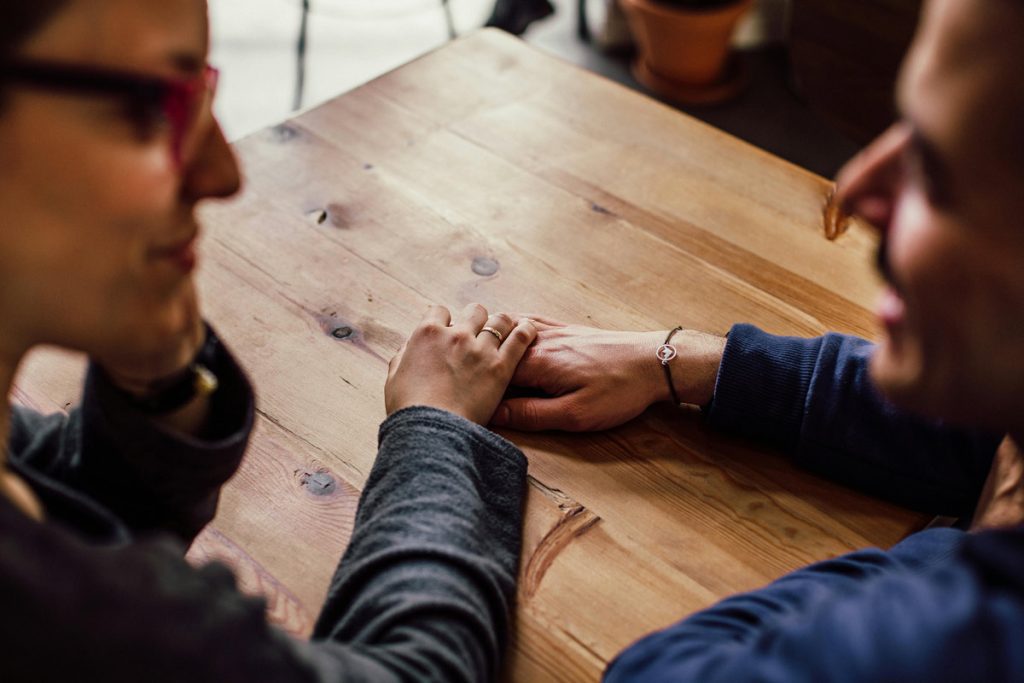When struggling with your mental health, pushing yourself to help others might not be at the top of your to-do list. But supporting other people around us can be a form of self-care, improving our happiness, confidence, and self-worth.
Here’s how helping others can improve your mental health and some simple ways you can start incorporating it into your daily life.
How Can Helping Others Impact Our Well-being?
Giving advice, engaging in small acts of kindness, or just being there to listen can make someone’s day a little brighter. When lighting a candle, you shed light on yourself. In the same way, helping others can reflect positivity back on you.
One study found that helping others handle their emotions, such as giving advice or support during stressful situations, helps us improve at managing our own emotions. Even when we’re offering support online, we practice emotional regulation. This study also found that the more people engaged in helping others, the more their depression symptoms decreased.
There’s other research to back this up and show that engaging in kind acts increases positive emotions for socially anxious individuals and can generally make us happier.
How You Can Start Helping Others
Despite these benefits, we tend to underestimate how good helpers will feel and overestimate how much they’ll be inconvenienced, which can be why most people refrain from seeking support from others.
At the same time, many of us can be hesitant to offer this help, maybe due to anxiety, fear of rejection, or simply not knowing where to start. However, you don’t need grand gestures or elaborate plans to make a difference in how you and others feel.
Here are a few things to try:
Offer Advice or Support in Online Forums
If reaching out in person feels intimidating, online peer support can be a great alternative. Forums like Reddit let people share their struggles, ask for advice, or vent without fear of judgment.
If you want an easy way to help, check out a subreddit like r/advice and offer your perspective. Even if you don’t have a perfect solution, just letting someone know they’ve been heard can positively impact their well-being.
And it’s not just about them. It can help you, too. Supporting others, especially those facing similar challenges, reminds you that you’re not alone.
Allow Others to Open Up
While people in online forums may be ready to share, most of the time, that’s not the case in real life. Being vulnerable is hard. Even opening up about a minor issue can feel intimidating.
What if they don’t understand? What if they judge me? Am I just being a burden?
Sometimes, it seems like no one cares or wants to hear the ‘bad’ stuff. But you can help break that barrier by encouraging the people around you to open up. Start with open-ended questions. If you ask someone how they are and they give a negative or uncertain response like “Not so good,” instead of just nodding, ask, “What’s on your mind?” or “What’s got you feeling that way?”
Respond with support and focus on what they’re saying instead of shifting the topic to yourself. Replying, “Oh yeah, that happened to me too!” might seem helpful, but it can make them retreat instead of opening up further.
Just being present and attentive rather than dismissive shows them you’re there to listen. By doing that, you’re helping lighten their load and showing them they can turn to you for help when needed.
Teach Someone a Skill
Being a shoulder to cry on isn’t the only way to help others. Sometimes, teaching someone a new skill can do wonders for their self-esteem.
If you’ve got a skill or a hobby you’re passionate about, offer your expertise to others. You don’t need to push. You can gently encourage someone to learn from you by sharing a few simple tips or tricks.
For example, if you’re skilled at a craft, show them some techniques, or if you’re handy with DIY projects, let them know the basics. Be patient as they learn and offer positive, constructive feedback to help them improve.
Working with them to gain a new skill increases their confidence while giving them something to accomplish. At the same time, you’ll both benefit from socializing, which can ease feelings of anxiety, depression, and isolation.
Assist Strangers
The best part of small acts of kindness is that they often only take a few minutes or seconds. Assisting strangers starts with something as simple as a smile. When you smile at others, you show them kindness and make yourself more approachable.
Other small gestures, such as holding the door for someone, letting others go ahead of you in line, or leaving a bigger tip, can be done without asking for ‘permission.’ These actions are especially beneficial if you struggle with social anxiety, as they allow you to help without the pressure of prolonged interactions.
If you’re a bit more extroverted, you could offer to pay for someone’s coffee, carry groceries, compliment someone’s work, or volunteer at a local event.
You also don’t have to be around for the kind act to have its benefits. Purposely parking in a farther spot to leave closer parking spaces for others, picking up litter on the street, or donating to food banks are thoughtful ways to help. You might not witness the immediate benefits, but your actions can leave someone feeling better, encourage them to pass it on and make you feel more connected to your community.
Final Thoughts – The Mutual Benefits of Helping Others
I set out to ease my anxiety through acts of kindness to other people, which was a low-stakes way to step out of my comfort zone and expose myself to new experiences rather than further isolating myself.
I pushed myself to make small talk, give little gifts to acquaintances, and focus on listening rather than rambling. I noticed these acts made me happier and more content.
Helping someone else, even in a tiny way, was an accomplishment. People were kinder to me in return, which also eased my anxiety. It created a positive feedback loop, where the more I gave, the more I received, not just in gestures but in how I felt about myself and the world around me.
Not everything we do needs to come with an expectation of something in return, and it’s often the selfless, altruistic acts that leave us feeling the most fulfilled. I see the mutual benefits of helping others as a bonus and a reminder that, sometimes, the act of giving is its own reward.
Your small gesture for someone else today can kick off a chain reaction, where each person positively impacts another in a meaningful way, often without even noticing. It gives us a sense of purpose and sets a better example in a world where, sadly, basic kindness, understanding, and compassion aren’t always guaranteed.
About the Author: Heather is a content writer with personal experience navigating mental health challenges. Passionate about research and science, she created gettingtoknowourselves.net to share valuable knowledge and help others on their journeys in well-being, personal growth, and creativity. She hasn’t gotten it all figured out, but she knows the path of understanding ourselves is best walked alongside others.
Photo by Juan Pablo Serrano: https://www.pexels.com/photo/man-and-woman-sitting-together-in-front-of-table-951290/
The opinions and views expressed in any guest blog post do not necessarily reflect those of www.rtor.org or its sponsor, Laurel House, Inc. The author and www.rtor.org have no affiliations with any products or services mentioned in the article or linked to therein. Guest Authors may have affiliations to products mentioned or linked to in their author bios.
Recommended for You
- When the World’s Pain Becomes Your Own: Understanding Secondary Traumatic Stress - February 17, 2026
- How to Keep Love Alive: The Balance Between Romance and Routine - February 12, 2026
- The Power of Peer Support: How Young Adults Navigate Mental Health Recovery Together - February 9, 2026





